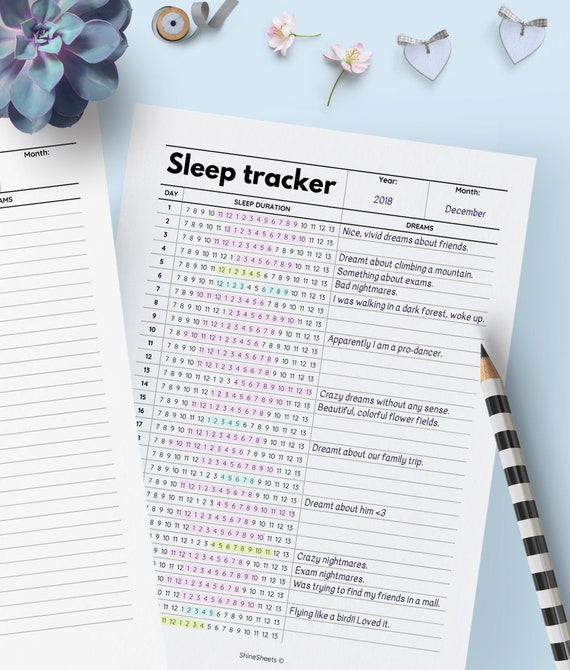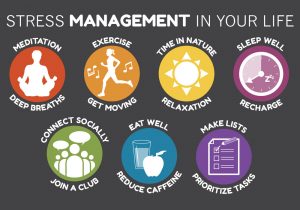3 Forgotten Facets of Health & Wellbeing
Want to get on the path to a healthier you? Then the World of Fitness on social media will undoubtedly offer two simple solutions : good nutrition and regular exercise.
This is a bit of a shitter for two main reasons: number 1, ‘eat well; move more’ is a massive over-simplification of an array of complex changes that one has to make to their lifestyle. And number 2, because it fails to recognise the broader components of health and wellbeing; those which, if neglected, can negate your hard work on the nutrition/exercise side of the island an thus stunt your progress
In this article explain 3 forgotten components of health and wellbeing that you have probably been forgetting to consider in your journey towards your fitness goals, and prove to you that it is not just about eating well and moving more....
1. Sleep
You were probably nagged mercilessly as a kid by your maw to go to bed early so you can get your 8hrs. However, as soon as we hit the chaotic world of being an adult, many people’s shuteye starts to suffer due to various lifestyle factors that cause sleep deprivation.
Lack of sleep has a negative impact on so many different areas of our lifestyle, from increasing stress, to reduced energy levels throughout the day, to increasing appetite due to the release of the ‘hunger hormone’ (ghrelin).
When it comes to your work in the gym, not getting enough sleep will significantly delay recovery from exercise, and thus will cause your work capacity in the gym to decline very quickly.
Put simply, the less sleep you get, the lower the frequency and intensity of training, and consequently the slower your progress towards your goal will be.
How can you improve your sleep, you ask? Well, here are a few methods that have been proven to significantly benefit sleeping patterns; all of which I myself have successfully tried in attempts to improve my own sleep:
- Sleep Trackers (Fitness Watch/Smartphone) - at risk of sounding like my old man, modern technology really is pretty awesome; not least in recent innovations that give us access to detailed analytics of the quantity and quality of our sleep. Check your FitBit/smartphone to see how good the quality of your sleep is, and track what things you do before bed that affect your sleep positively or negatively

- Manual Sleep Diary - this is pretty much like a standard journal; the only difference is that everything you document relates to your sleep. This could include what you do before bed, how long you slept for, how many times you woke up in the night, or how you felt in the morning. This can help you identify pre-bed behaviours that increase the likelihood of you getting a good nights sleep
- Practicing Good ‘Sleep Hygiene’ - Sleep hygiene is a term used to describe certain behaviours done during the day/before bed in order to maximise the quality of your sleep. Things such as having a tv/phone curfew 30-120 mins before hitting the sack, ensuring that your room is a cool temperature, and making your room as dark as possible

Long story short, Sleep is essential for any fitness goal; whether you want to put on some serious size, or shed some serious poundage, getting your daily dose of Z’s will promote optimal condition to train at the desired frequency & intensity.
2. Stress & Anxiety
Let’s be honest: modern life can be a mahoosive bitch. Not least in more recent times what with corona kicking about...
Although you may think that the stresses you experience in your own lives are entirely mental, the truth is a wee bit different. In fact, the hormonal changes within our body deriving from stress can have an incredibly significant effect on the physiological side of the island.
When yet another hefty bill comes through the letterbox, or your manager at work gives you another unnecessary bollocking on a Monday morning, your body releases the hormone Cortisol.
This chemical change in the body can have impacts such as reduced metabolism, sleep deprivation, chronic fatigue, and increased hunger. And, if you are wanting to lose a bit of fluff, then cortisol is going to be bad news to your progress as it inhibits weight loss...
There are various different ways you can manage stress, my personal favourites of which include:

- Journaling - similar to the sleep journal previously discussed, you can use a daily journal to track your mood and monitor your stress levels according to what occurs in your daily life. You can then begin to understand particular triggers that cause your stress levels to increase, and identify which situations you may need to implement psychological calming strategies.
- Mindfulness / Centering - mindfulness is a bit of a hot topic at the mo, with apps and softwares popping up everywhere to help one achieve a sound state of mind. In daily practice, this doesn’t have to be the whole sit-cross-legged/candles/Buddha-hands vibe; in reality, it can be as simple as taking 10 deliberate, deep breaths (centering) when you are experiencing high anxiety/stress. This will help calm you down, re-focus your mind, and help you think rationally about the situation as opposed to getting increasingly worked up.
- Exercise - not necessarily talking about a heavy gym session here (although that is a good way to manage stress); I am more referring to things like taking a 30" walk outside to get some fresh air, doing some yoga, or going for a light jog. Getting out and about when you are feeling stressed can help balance out your mind and bring you back to a sound state of mind following a grim situation. When people use the saying 'blowing away the cobwebs', it has a whole 'lotta truth to it!
3. Hydration
Naturally, when it comes to what we put in our mouths, the focus is almost solely aimed towards our nutrition. People rarely consider whether they are drinking enough water, or take note of drinks other than Adam's Ale that go in the boiler over the course of the day (coffee, squash, soda etc.).
Water really is the elixir of life. It plays so many different roles within our bodies, from maintaining circulation of blood, to supporting the flushing out of toxins from the body. Yet our daily water intake is so often overlooked when formulating a plan of action towards a better, healthier self.
The recommended RDI of water in the UK is 1.2-1.5l (6-8 standard glasses), but ifyou are even slightly physically active it is suggested that it should be closer to 2-4l per day depending on how much exercise you do during the day.
It is much better to spread your intake evenly across your day to ensure that you don't become thirsty at any point; feelings of thirst is an early sign of dehydration, so it is much better to stay one step ahead and never let yourself get too thirsty!
Here are my top tips for getting enough H20 in the tank at regular intervals throughout the day:
- Carry A Water Bottle with you at all times - I recommend getting a bottle that holds at least 500-750ml; that way you can easily track how much you've been supping over the course of the day.
- Write Times in Marker Pen on your Bottle - luckily lots of modern water bottles have got you covered on this one, but if your bottle isn't blessed with ready-made marks to show times throughout the day when you should have a sup, just make a couple of marks every 200-300ml to remind you to drink every hour or so.
- Have a Jug in Open View On Your Desk - if you work in an office job, then be sure to make a jug of water and a glass visible in your workspace so that you have easy access and visual reminders to keep hydrated throughout the day

The Final Word
Please do not misunderstand the point of this article; of course exercise and nutrition are the most significant things to consider when looking to improve your lifestyle and achieve your health and fitness goals. However, I have tried to open your eyes beyond these two elements of your lifestyle in the hope that you can create a well-rounded plan of action that incorporates every important aspect of wellbeing.
Use the solutions I have explained for optimising each of the 3 components within this article to help you support your exercise and nutrition programme, and thus nudge you ever-closer to your ultimate goals...
Because a Healthy Lifestyle is a lot more than eating an apple & jumping on a treadmill...
Do YOU Want to Make Long-Lasting, Permanent Change To YOUR Lifestyle?
Then Get In Touch To Organise Your FREE 15-minute Consultation
Email now : gripperpt@gmail.com , or Call : 07399 616 822

